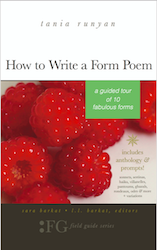Medaphor for When Should the Tree of Us Meet Again Will It Be in Thunder Lightning or Rain

Order and Disorder in Macbeth: Nature Reigns
The play Macbeth, by William Shakespeare, is a story about how a human being, Macbeth, and his wife tried to meddle with order and fate, and how this backfired tragically. The tale uses nature equally a reflection of the emotional inner events of the characters and uses information technology to illustrate Shakespeare'southward pregnant that draws on the Elizabethan worldview in which all things have their proper place and lodge, and graphic symbol and fate is quite predetermined. It reads like a horror story with supernatural elements in which the order of nature is overturned when the rightful rex is murdered, and the confusion of gild, both personal and nature-wise, persists until the end of the play when a rightful rex returns and takes up his crown.

Nature Mirrors
The play has ii ancestry, though ane is more like the prologue, and each of them mirrors the globe/air, natural/supernatural divide. In the commencement opening, with the witches, nosotros larn that there is a boxing that will be "lost and won" and that they volition meet Macbeth, the protagonist of the play, on a heath. They exit with the words, "fair is foul, foul is fair, hover through the fog and filthy air, " and in the 2nd opening, on the heath after the boxing has been won, Macbeth echoes their words with his opening lines, "and so foul and fair a day I have not seen."
From the very start of the play the witches are associated with the air and with the supernatural elements; in fact their very first line reflects this: "when shall we three meet over again, in thunder, lightning, or in pelting?" while Banquo and the Rex, every bit well as many other small players, including the Male monarch'due south son, Malcolm, are associated with world and the natural social club; Macbeth and his wife's identify is uncertain, but aligned more with air and the supernatural than with the ground.
When the witches disappear, Banquo asks, "the globe hath bubbles, as the water has, and these are of them. Wither are they vanished?"
"Into the air, " Macbeth answers, "and what seemed corporal melted equally breath into the air current."
From that aforementioned beginning, Banquo is associated with the earth. When asking the witches of his future, he asks if they can "look into the seeds of time and come across which grains will abound and which volition not"; when they run across up with the king, he and Duncan have an exchange in which Duncan uses plant metaphors. Banquo and the king stand for the natural order, whereas the Macbeths' ambition and the lengths they will get to realize it overturn that order, and create anarchy, chaos, and entropy.
The witches as well represent anarchy; inasmuch as they represent globe they are the wild, untamed wildernesses, while the State, under the rule of the king and of subjects each in proper places works like a farm, a place of growing and plenty, just more chiefly, of order. The witches are described as "wither'd and wild"; they run into Macbeth first on a heath—where they announced to him without his go out and vanish over his protestations—and again in a cave, where Macbeth seeks them out and has to exist invited inside; "open, locks, whoever knocks", and where, consequently, they prove him apparitions and concede to his demands, showing the double truth that he is closer to them than before but that that closeness, though information technology feels like power over them, means only he is existence controlled by them (if he had been able to encounter their vengeful intentions, he would accept known he could never win confronting Fortune/Fate, though he had seemed to successfully disdain Fortune in the showtime after it smiled on Macdonwald, whom he killed: "For brave Macbeth…disdaining Fortune, with his brandished steel, which smoked with bloody execution…carved out his passage…"). Now, by aligning himself with the supernatural he has become vulnerable to it and is set up to receive the payback of Fate (generally pictured as three "sisters" in classical mythology), which does not take kindly to being disdained.
The land, of grade, draws on the king, its health depending on his health and drawing prosperity from him; therefore, it is no surprise that when he was murdered, the country would react in many disastrous ways that parallel the murder that had occurred: the mousing owl (Macbeth) killed the hawk (Duncan); the king's horses went wild and ate each other; when Macbeth creeps to Duncan's bedchamber to murder him, he asks "Thou sure and house-ready globe, hear not my steps, which way they walk, for fear thy very stones prate of my whereabout."
As the air and the wilderness is associated with the supernatural, and so is darkness, and it is darkness that Macbeth and the Lady call on to help them in their crimes. When Duncan names his son as his heir, Macbeth prays, "stars, hide your fires; let non lite see my black and deep desires" and when the Lady reads Macbeth's letter and decides to impale rex Duncan, she asks, "come, thick nighttime, and pall thee in the dunnest smoke of hell, that my keen pocketknife see not the wound information technology makes, nor heaven peek through the coating of the night, to weep 'Concord, Agree!'" When Macbeth arranges to impale Banquo, he says, "come, seeling night, scarf upward the tender heart of lamentable twenty-four hour period; and with thy bloody and invisible hand abolish and tear to pieces that bang-up bond which keeps me stake! Light thickens; and the crow makes wing to the rooky wood: good things of day brainstorm to droop and drowse; while night'south black agents to their preys do rouse." Duncan is of the day, of guild; when he dies, the lord's day doesn't come up. Afterward on, the Lady Macbeth will require a candle by her bed at all times, even taking it with her as she sleepwalks; only though "her eyes are open… their sense is shut"; and she walks in darkness even with a light.
The Proper Order
The proper gild of all things includes sleep, and every bit the guild is unbalanced with the killing of Duncan, slumber is also murdered. Macbeth hears a vox say, "Sleep no more! Macbeth does murder sleep… Glamis hath murder'd slumber, and therefore Cawdor shall slumber no more; Macbeth shall sleep no more." He and his Lady retire to their chambers so that they will be idea to take been sleeping then every bit not to raise suspicion, but information technology is a feigned sleep, a lie to hibernate the evidence of their crimes—at the time of Banquo's murder, Macbeth refers to "these terrible dreams that milkshake us nightly", showing the fact that the phonation had been right, sleep had been denied them ever since the murder, e'er since they allied themselves with disorder. This lack of slumber is foreshadowed and continued with the Witches; earlier in the play, when talking of the captain of a ship who angered them, the witches' punishment includes depriving him of sleep: "sleep shall neither dark nor mean solar day hang upon his pent-house hat; he shall alive a man preclude: weary se'nnights ix times 9 shall he dwindle, peak and pine".
Supernatural, Unnatural, and Natural
The supernatural element itself embodies the unnatural, from the advent of the witches who "should be woman" and however aren't, to the mysterious apparitions created by the witches and those that form before Macbeth: the bloody dagger that heralds the murder of the king, and the ghost of Banquo that appears one time Macbeth has learned of his expiry, sitting on Macbeth'southward own seat. Macbeth says, of the ghost of Banquo, "Blood hath been shed ere now, i' the olden time, ere homo statute purged the gentle weal; ay, and since likewise, murders have been perform'd also terrible for the ear: the times have been, that, when the brains were out, the human would dice, and there an stop; but now they rise again, with 20 mortal murders on their crowns, And push us from our stools: this is more strange than such a murder is." Simply as nature is attacking itself after the murder of the king, Macbeth's secret knowledge is attacking him in the form of apparitions; and the Lady Macbeth will be tormented by reliving the consequences of the murder fifty-fifty in her dreams.
The ultimate and last twisting of nature is both the culmination and the ending of it all, bringing the power dorsum into reality and normality: when the prophecies (that Macbeth could not exist killed by ane of women born), and that "Macbeth shall never vanquish'd be until peachy Birnam wood to high Dunsinane loma shall come up against him" are fulfilled. Their letter seems to herald the incommunicable, if not the supernatural; "Who can impress the woods, bid the tree unfix his earth-spring root?" Macbeth asks, thinking he is prophylactic; but in fact the culmination involves zero supernatural at all; the wood coming to Dunsinane was a tactic the soldiers used to hide their numbers past property branches over them and nothing more than; it is the natural which has defeated Macbeth, for all his religion in supernatural aid. With the return of the male monarch's named heir Malcolm from exile and the restoring of order, the turbulent rule of the Macbeths is over. Daylight presides.
Photo by PS Lee, Creative Commons, via Flickr. Mail by Sara Barkat.
Encounter Lord of the Flies (Also a Text of Social club & Disorder)
Meet Was Hamlet Sane or Insane?
Browse more than Shakespeare

Buy How to Write a Poem Now!
![]()
- Author
- Recent Posts
![]()
Source: https://www.tweetspeakpoetry.com/2015/05/29/order-and-disorder-in-macbeth/
0 Response to "Medaphor for When Should the Tree of Us Meet Again Will It Be in Thunder Lightning or Rain"
ارسال یک نظر